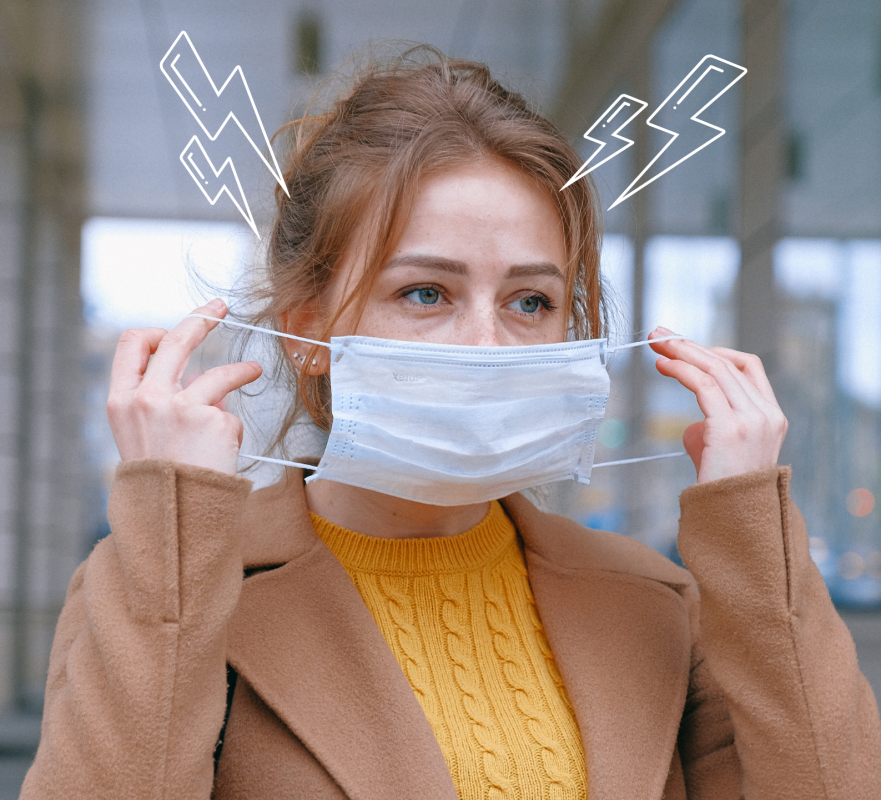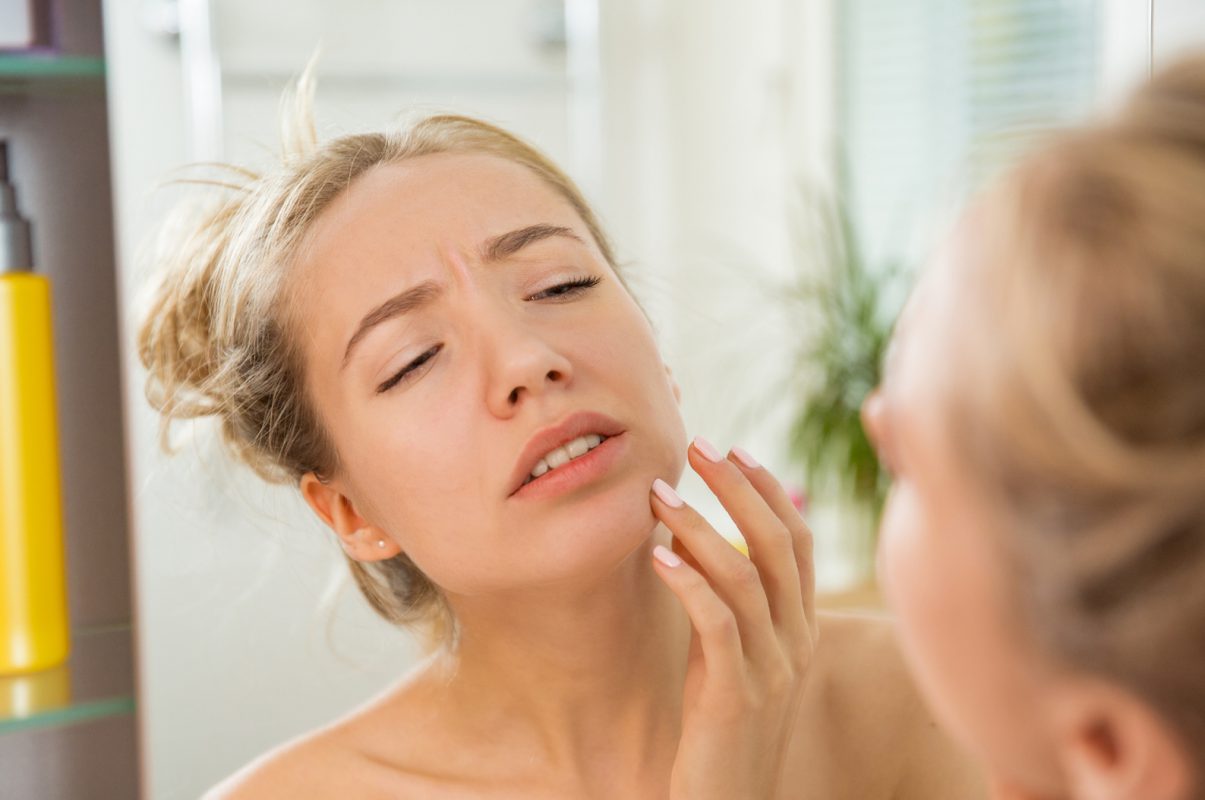Since at more and more locations people wear masks for the Covid19 virus, you are also increasingly hearing about specific skin problems for people with sensitive skin. A term has also been posted for it: “maskne”, a combination of the English word “mask” and “acne”.
Actually, “maskne” is a long-standing problem and its official scientific name is “acne mechanics.” A skin condition that is often caused by the long-term wearing of personal face protection equipment, as can often be found in the medical and catering professions. Less common, but no less serious, it occurs among people who frequently wear headgear for fun such as a bicycle helmet, caps, bandanas, etc. Here you often see forehead skin problems exactly where the covering fits tightly against the skin. Now this condition has got a modern name and has become even more widespread among the population due to the frequent wearing of mouth masks.

Maskne: What it is and why it happens
Wherever the skin is covered, there is heat, friction and sealing of the skin. Behind a mouth mask, through the combination of talking, exhaling and sweating, you create an ideal environment for irritations and pimples. The friction of the mouth mask rubs dirt and old skin cells into the pores, causing them to clog. Sebum that is produced in the pores to facilitate important processes in and on the skin can no longer flow out.
This allows bacteria in the pore to multiply and cause inflammation. With consequences such as redness, pimples and blackheads. In addition, long-term blockages and the combination of heat and sweat can make the skin itchy and feel rough and dry (don’t touch with your fingers!).
Mask wearers with sensitive skin are also more likely to suffer from so-called allergic skin conditions (contact dermatitis) due to irritants. For example, chemicals such as formaldehyde and bronopol are often used in polypropylene surgical masks.
You also see that:
Rosacea, classically aggravated by heat and stress, can be made worse by wearing a mouth mask.
Seborrheic dermatitis, a skin disease that accelerates skin cell division can exacerbate flaky skin.
Folliculitis, an infection of hair follicles from an excessive amount of fungi and yeasts, can get worse.

5 tips: How to prevent it?
- Regularly wash your face with mild cleansers. You don’t want old skin cells and dirt to clog pores, but you also don’t want to disrupt the healthy microbiome too much. If you cleanse too aggressively, the skin dries out and will start to produce more sebum. More sebum can clog the pore and put you in a vicious circle.
- Afterwards apply a moisturizing cream. Not only will this keep your skin hydrated, it will also act as a barrier between your face and your mouth mask, reducing friction. When you find the term “non-comodogenic” on the packaging, it is even better. Non-comodogenic means that the product has been tested to not clog the skin. The official name for black / white blackheads is “comodones”. So then you know…..
- Use no or as little make-up as possible! Wearing make-up, or old make-up residues left behind, under a mouth mask increases the chance of closing pores.
- When wearing a lace mask, wash it regularly. A soiled mouth mask can become a breeding ground for bacteria from your mouth or nose. NB: prefer fragrance-free detergents, with sensitive skin, certain odors may irritate the skin. Note: so skip that nice smelling fabric softener!
- Avoid aggressive products as much as possible. Medicinal skin care products containing benzoyl peroxide, retinols and / or salicylic acid can be much more irritating under a face mask than on skin exposed to the outdoors.
The tips above will help reduce mask-related skin irritation and maskne. If you want extra help to support the skin, carry the Anna is Clear® serum with you as standard and use it 4 to 5 a day on the affected skin. It contains absolutely no aggressive ingredients and strengthens the natural function of the skin and microbiome, helping the skin to solve or prevent skin problems.
Please note: in case of skin problems, we always recommend to visit a dermatologist or doctor!
Anna is Clear®
Happy skin, happy life!